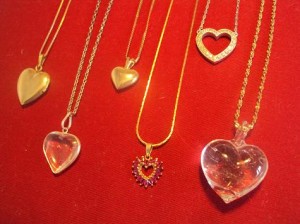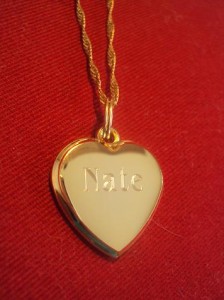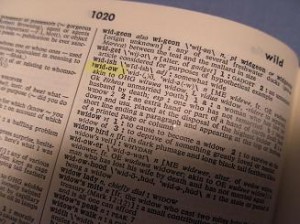I laughed the other day when a radio commentator made reference to today’s students as the “I-heart-you generation.” She was referring to the abbreviated communication between boyfriends and girlfriends that has replaced traditional love letters. Texts and tweets are preferred over hand-written messages that were, in bygone years, scented with perfume, sealed with a kiss and read over and over again.
I still have every one of Nate’s love letters, written to me in the late sixties and early seventies. They span the weeks after we met, the time during which we developed a friendship, the months of his active duty in the Army and our five month engagement period. As I recall, they included a vocabulary of love, original four-line poetry and an abundance of longing, although I haven’t re-read them in forty years.
Nate was a frequent letter-writer during those days but also spoke the language of the I-heart-you-generation long before 21st century kids ever thought of it. Always the gift-giver, in our early years together he communicated his love with heart-shaped necklaces. The first was a small one made of ruby chips which I’ve worn hundreds of times. After that, any heart that would strike his fancy found its way home.
His most recent heart gift came during the summer of 2007 just after our son Hans got married. It was time to go home, and we were painfully late for our flight to Chicago. As we raced through the Manchester airport dragging wheeled bags and carrying many more, my eye caught on a display of chunky heart-shaped glass pendants in a glittering gift shop. “Oooo!” I pointed as we ran past. “Look at those!”
I never broke stride but ten paces further realized Nate had. When I looked back, he was stopped in front of the necklace display, reaching into his pocket. “Might as well get rid of our British pounds,” he said, looking at me. “Come and pick one fast!”
No problem, since they were all gorgeous. We made the plane, the whole crowd of us, just before they closed the doors, and today I have my glass heart, along with that joyful memory of Nate’s desire to please. I never had cause to doubt his love.
Nate loved me in a 1 Corinthians 13 kind of way. In doing so, he was being Christ-like, and I wish I’d thanked him for that. God’s love for his children can’t be duplicated, because he’s God and we’re not. And his greatest love-gift, that of his Son Jesus, represents a depth of love beyond all human possibility. Nevertheless, he wants us to reflect his love as we try to love others. Nate did a good job of that.
In the days immediately after he died, my heart hurt. I wore his heart necklaces often, sometimes under my hoodies, thinking about the circumstances that prompted each gift. Then one day while opening the mail, I came to a padded envelope. A college friend who knew nothing of Nate’s penchant for heart pendants had sent a golden heart with the word “Nate” engraved on it. She said, “You don’t have to wear it in the traditional way. Just pin it to your pillow, hang it over a mirror or slip it into your pocket.”
I was touched deeply by her thoughtfulness, and it seemed a fitting final necklace to add to Nate’s series of hearts. He “hearted” me, and one of these days I’ll celebrate by re-reading those old love letters. On a cold winter night, it’s bound to be a warm walk down Memory Lane.
“Love comes from God… for God is love. This is real love—not that we loved God, but that he loved us and sent his Son as a sacrifice to take away our sins.” (1 John 4:7,8,10, parts)



